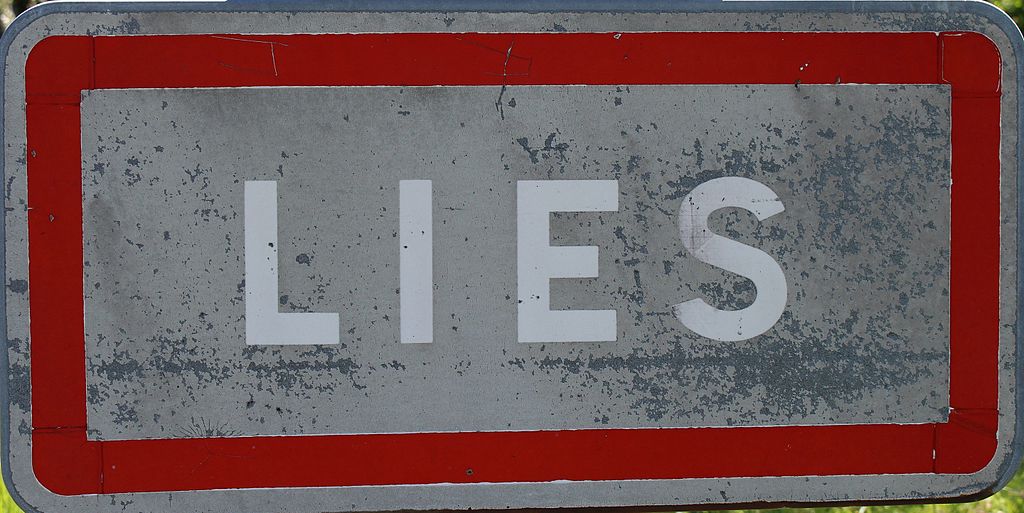INTRODUCTION
What is most important? It’s a great question. We all have to decide what we value most in life, what is the “pearl of great price,” to use the words of Jesus, the things that count the most, that really matter.
That’s the frame of mind that Agur is in, when we read Proverbs 30. His name means “gathered,” and he the son of Jakeh meaning “pious.” In his life, we can imagine that Agur gathered a lot of things, but what things are the most important? “Before I die,” he prays, “LORD, grant me just two things.” First, let me forsake fraud and lying, and secondly, give me what I need, my “daily bread.” Let’s look at Agur’s “two things.”
I. FRAUD AND LYING
In Proverbs 30:8, Agur prays: “Keep falsehood and lies far from me.” The King James translates “falsehood” as “vanity.” It stems from the Hebrew word shaw, which indicates anything that is morally worthless. The Common English Bible uses the word “fraud” – “Fraud and lies – keep far from me!” The Hebrew word for “lies” is kazab. It refers to deception and the act of lying. Underlying this moral teaching is the understanding that God does not lie. Numbers 23:19 reminds us, through the prophecy of Balaam: “God is not human, that he should lie.” The basis of holiness is that we are to emulate God; God is our pattern, so if God does not lie, then how can we?
This carries over to the New Testament. Acts 2:44 says that “all the believers were together, and had everything in common.” The early Christians at Jerusalem lived off the proceeds of land that they sold individually, donating the proceeds to the group. One example appears in Acts 4:36-37, where it’s noted: “Joseph, a Levite from Cyprus, whom the apostles called Barnabas (which means ‘son of encouragement’) sold a field he owned and brought the money and put it at the apostles’ feet.” Acts 5 tells the fearful story of Ananias and Sapphira. They sold a piece of property, but held back part of the money for themselves. When Ananias brought only part of the money to lay at the apostles’ feet, Peter immediately confronts him. “You’ve lied to the Holy Spirit.” He then revealed what Ananias had done, and concludes in verse 4: “You have not just lied to human beings but to God.” When he heard this, Ananias fell down and died. Three hours later, his wife, Sapphira came in, unaware of what had happened to her husband. Peter asked her: “Is this the price you received for the land?” When she replied “yes,” Peter said: “Listen! The feet of the men who buried your husband are at the door, and they will carry you out also” (Acts 5:10). Saphirra falls over dead, and they buried her next to her husband. The story concludes with these words in verse 11: “Great fear seized the whole church and all who heard about these events.”

I don’t think any of us sets out to become what the late psychiatrist M. Scott Peck called “the people of the lie.” I do think, however, we can get into some lazy habits, and sometimes unwittingly model to our children what is less than truthful. For example, your granddaughter picks up your cell phone when it rings and says “hello?” It’s a friend of yours, she says, and you reply: “Tell her I’m not home.” There may be other times when telling the truth might seem embarrassing, but is that a reason to lie?
When I was in my early teens, “Sue” and her husband, “Jeff” watched me and my brothers for several days while my parents were away at an annual conference for my father’s work. Sue had laid her purse and a few things down on the desk in our living room, and nosy boy that I was, I saw a what looked like a square plastic holder containing little pills lined up in a row. I’ve never seen anything like it, and was curious. “Mrs. so-and-so” I asked, holding up the birth control pills, “what are these”? She could have made up any kind of story at that point and I wouldn’t have known any better, but to her credit, she answered truthfully, at a level I could understand. “Greg,” she said, “those pills prevent me from having a baby until Jeff and I are ready.” I put the pills down, satisfied with her answer, and having learned something new about human biology. I went back to playing with my little brothers. In retrospect, I’ve always appreciated that Sue answered honestly, and she modeled for me how we can be honest with our children in ways that are age appropriate.
In Dostoevsky’s The Brothers Karamazov, he urges: “Above all, don’t lie to yourself. The man who lies to himself and listens to his own lie comes to a point that he cannot distinguish the truth within him, or around him, and so loses all respect for himself and for others. And having no respect he ceases to love.”
We live in a day and age when honesty in is short supply. Especially during an election season, all kinds of claims are made about one’s opponents. Some are true, but many are plain false, or at least have been taken out-of-context. Other times, we may see a claim come across Facebook or other social media, saying that we as Christians should be angry because in some way our rights are being infringed. An example of a false claim is that Mark Zuckerberg is going to ban the Lord’s Prayer from Facebook, so Christian, it’s your duty to post up the Lord’s Prayer! It took just 15 seconds to Google the claim, and an article from Reuters, dated January 17, 2022, debunks the rumor. Meanwhile, it has been shared more than 500,000 on Facebook! Worse, it’s a resurgence of a rumor from 2020, when it was also debunked. What does this to our witness as Christians? It certainly leaves the impression that we’re uninformed, or paranoid, or at very least, too lazy to fact check before we bear false witness. Mark Twain once said: “A lie can travel halfway around the world while the truth is still putting on its shoes.” He’s in good company. Agur prayed: “Before I die, do not refuse me two things. First, keep falsehood and lies far from me.”
II. GIVE ME ONLY MY DAILY BREAD
Besides keeping him far away from fraud and lying, Agur asks the LORD for a second thing, in Proverbs 30:8 – “Give me neither poverty nor riches, but give me only my daily bread. Otherwise, I may have too much and disown you and say, ‘Who is the LORD?’ or I may become poor and steal, and so dishonor the name of my God.”
I like how the Common English Bible puts it: “Give me just the food I need.” It’s a reminder to the Jewish people of how God provided manna for them on a daily basis in the wilderness. They were instructed to gather only as much as they needed, and not to stock pile it. In Exodus 16:20, some disobeyed Moses’s clear directions, and kept some overnight. In the morning, it was full of maggots and started to smell. Only on Friday were they to gather enough for Friday and Saturday, since Saturday was the Sabbath and God provided no manna on that day.
When we come over to the New Testament, Jesus affirms the daily bread principle when he teaches his disciples to pray: “Give us this day our daily bread.” He seems to be quoting the words from Agur in Proverbs 30. It’s a reminder that we are to come to the Lord on a daily basis, to bring him our needs, physical and spiritual.
Agur is aware that danger always lies in the extremes. Get your eyes on prosperity and the blessings it brings, and soon money becomes your master. It becomes an end in itself and not a tool for providing for your own necessities, then seeing who else is in need. Your 43” TV works just fine, and has for a long time, but everyone at work is talking about their 70-inch TV, and you feel left out. I’ve learned that 2-word response to every sales pitch: “I’m good.” But if the prosperity Gospel – the teaching that following Jesus means you’ll become wealthy – is false, its opposite, the poverty Gospel, is equally wrong. God is not glorified by children who go to sleep at night on an empty stomach. A worker and his family are not ennobled by keeping them at poverty wages, maintaining a minimum wage that cannot pay for rising rent and food costs. Agur fears that if he is too poor, he will be tempted to steal. In short, we need not too much, nor too little, but the right amount to live with dignity and to commend the Gospel.
As holiness people, I believe we have something to offer in this area. When we come to Jesus and begin to live like him, some old habits will fall away. Some of those habits cost money. It’s not cheap to smoke, and lottery tickets aren’t free. If we begin to live cleanly, as the Holy Spirit gently guides us, we may be like Helen, who I pastored in Missouri years ago. When she came to the Lord, I didn’t need to tell her to quit smoking. She decided to do it on her own. “Pastor,” she said, “I’m going to save the quarters I would have spent on cigarettes and keep them in my change purse.” I later heard how proud she was when the day came that she’s saved enough to take a trip she’d always wanted to take, but she’d never had the money before. Now she did.
When you say the word “thrift,” it almost has a musty, old-fashioned smell to it, yet thrift if a word right at home with Agur’s proverb. John Wesley, the co-founder with his brother, Charles, of Methodism, opposed extravagance. Toward the end of his life, he noticed a strange phenomenon. As the decades passed, Methodists were moving up the social ladder. When they started to live in ways that pleased God, they began to prosper. John Wesley was concerned that they would begin to depend – like the rich man in Agur’s proverb – upon their wealth, and forget God. And so Wesley wrote a three-point sermon: 1) Earn all you can; 2) save all you can; 3) give away all you can. His advice at the close of the 18th century is still valuable today.
CONCLUSION
Agur was thinking about what was most important in this life. He desired just two things. “Before I die,” he said, “keep me away from fraud and falsehood. Secondly, he asked the LORD to provide not too much, nor too little, but just the amount that he could live in dignity, commending the Gospel to others, honoring God’s name through his actions. May the Lord grant that our prayer is like that of Agur’s, and may the LORD help us to live it out.
___________________________
All Scripture quotations are from the New International Version of the Holy Bible (Zondervan, 2017).
Image credits
bread – CC BY-SA 2.0 https://creativecommons.org/licenses/by-sa/2.0, via Wikimedia Commons
“lies” – Sotos, CC BY-SA 4.0 https://creativecommons.org/licenses/by-sa/4.0, via Wikimedia Commons
